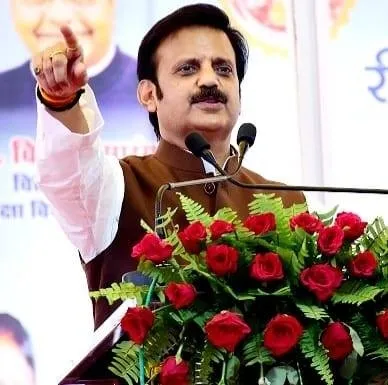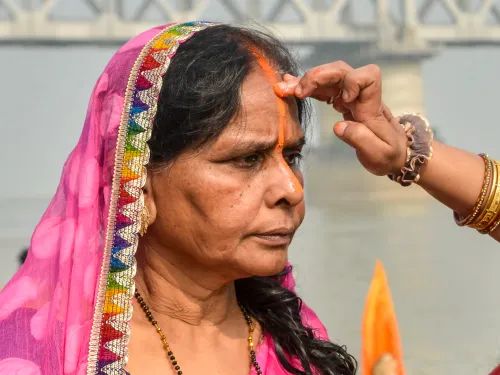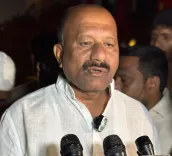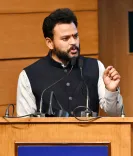How is Madhya Pradesh's Deputy CM Enhancing Health Services?

Synopsis
Key Takeaways
- Robust Coordination: Essential for effective implementation of health schemes.
- Regular Monitoring: Vital for timely completion of health infrastructure projects.
- Significant Funding: Rs 4,600 crore allocated for health improvements.
- Government Priority: Ensuring quality healthcare access for all citizens.
- Accountability: Immediate reporting of any project hindrances.
Bhopal, June 2 (NationPress) Deputy Chief Minister Rajendra Shukla emphasized that robust coordination and proactive collaboration among various departments will position Madhya Pradesh as a frontrunner in the execution of the Centre's health initiatives. Shukla, who holds the dual role of Health and Family Welfare Minister, expressed these views during a meeting with senior officials, where he conducted a comprehensive review of the construction and development projects undertaken under the 15th Finance Commission.
During the meeting at the Secretariat, he also assessed the advancements in the Pradhan Mantri Ayushman Bharat Health Infrastructure Mission (PM-ABHIMAN) by the Public Health and Medical Education Department.
Shukla underscored the necessity for stringent monitoring of all construction and development activities, ensuring they are completed within the set timelines, which is essential for providing timely access to quality health services for the general public.
In his discussions, Shukla covered critical topics such as the status of construction projects, budget utilization, quality assurance, deadlines, and the requirement for both technical and administrative support.
He instructed that regular reviews be held at the divisional level, with progress evaluations occurring at the state level every 15 days. Moreover, any hindrances in the work process are to be reported to higher authorities without delay.
"Delivering accessible and high-quality health services to the citizens of the state is our utmost priority. We will take all necessary measures swiftly to achieve this objective. Any negligence or unnecessary delays will not be tolerated," Shukla stated.
He also noted that under the 15th Finance Commission, an allocation of Rs 4,600 crore has been approved to enhance health infrastructure in Madhya Pradesh.
"To date, the state has received Rs 2,540 crore, with Rs 1,487 crore already utilized. For the establishment of building-less Sub-Health Centres, Primary Health Centres, and Community Health Centres, Rs 1,649.17 crore has been sanctioned," Shukla concluded.








